Resources
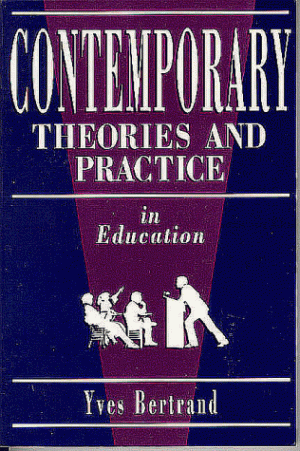
Contemporary Theories and Practice in Education explores the many lines of thinking that may influence how we teach. Bertrand explains who contributed what to our ways of thinking about learning and teaching - and why those contributions are important. This book invites you to enrich your teaching through the thoughts, research, and proposals of theorists such as Maslow, Piaget, Rogers, Vygotsky, Adler, Freire, and dozens of others. (From the Publisher)
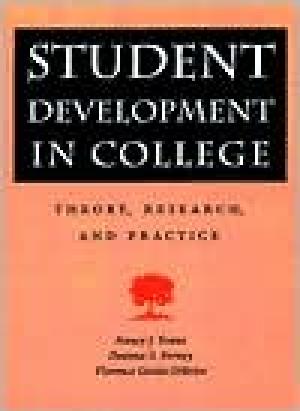
The second edition of Student Development in College offers higher education professionals a clear understanding of the developmental challenges facing today's college students. Thoroughly revised and updated, this edition includes new integrative theories of student development, expanded coverage of social identity theories, a targeted focus on higher education-related research, a current review of student development research and application, and reconceptualization of typology theories as a way to understand individual differences. (From the Publisher)

Many scholarly visions of morality in higher education suggest that moral instruction should deal primarily with a person’s professional or political identity. In contrast, Glanzer and Ream argue that a more wholistic moral education takes place within a university committed to a tradition that can set forth a comprehensive ideal for the school and its students about human well-being. (From the Publisher)

This book grew out of a project – involving deans and directors of teaching centers and diversity offices from six institutions – to instigate discussions among teachers and administrators about implementing socially just practices in their classrooms, departments, and offices. The purpose was to explore how best to foster such conversations across departments and functions within an institution, as well as between institutions. This book presents the theoretical framework used, and many of the successful projects to which it gave rise. Recognizing that many faculty have little preparation for teaching students whose backgrounds, culture, and educational socialization differ from theirs, the opening foundational section asks teachers to attend closely to their and their students’ relative power and positionality in the classroom, and to the impact of the materials, resources and pedagogical approaches employed. Further chapters offer analytical tools to promote inquiry and change. The concluding sections of the book demonstrate how intra- and inter-institutional collaborations inspired teachers to rise to the challenge of their campuses’ commitments to diversity. Among the examples presented is an initiative involving the faculty development coordinator, and faculty from a wide range of domains at DePauw University, who built upon an existing ethics initiative to embed social justice across the curriculum. In another, professors of mathematics from three institutions describe how they collaborated to create socially just classrooms that both serve mathematical learning, and support service learning or community-based learning activities. The final essay by a student from the Maldives, describing how she navigated the chasm between life in an American college and her family circumstances, will reinforce the reader’s commitment to establishing social justice in the academy. This book provides individual faculty, faculty developers and diversity officers with the concepts, reflective tools, and collaborative models, as well as a wealth of examples, to confidently embark on the path to transforming educational practice. (From the Publisher)

This book analyzes the behavior of chairs and deans through the political, structural, human resources, and symbolic frames. Lessons learned from the negative as well as the positive scenarios are highlighted, enabling deans and chairs to easily adapt them to their own situations. (From the Publisher)
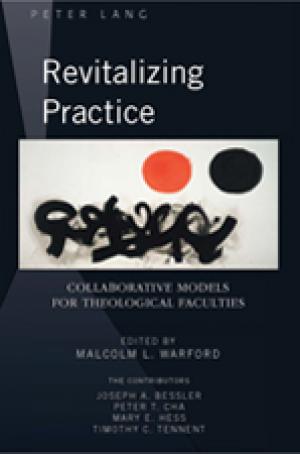
Revitalizing Practice is designed to help theological faculties engage a common set of challenges, particularly in the areas of diversity, formation, and institutional identity. These are not technical problems but are instead the very stuff out of which teaching and learning are practiced. Yet addressing such issues requires intentional strategies and collaborative work. Revitalizing Practice offers four such intentional strategies: «A New Ecology Model», «An Improvisational Model», «An Appreciative Inquiry Model», and «A World Café Model». Each of these models provides a thorough and practical framework (based on sound theoretical concepts) designed to help faculties revitalize their practices of theological teaching and learning. (From the Publisher)
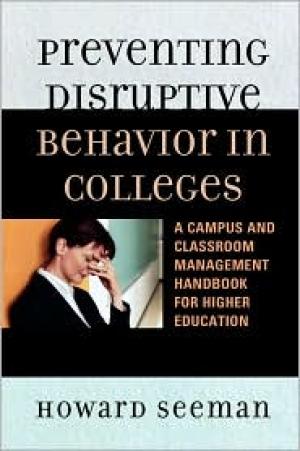
This book helps college instructors not just handle, but prevent these real-life disruptions in higher education so as to not lower learning standards. The book includes guidelines for preventive skills that respect the teaching style of the instructor/professor. Included are: concrete examples of problems and their prevention/solution; help with creating a Course Syllabus that curtails these problems; and training exercises to practice these skills. (From the Publisher)
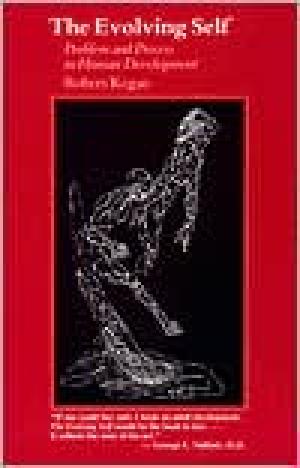
The Evolving Self focuses upon the most basic and universal of psychological problems--the individual's effort to make sense of experience, to make meaning of life. According to Robert Kegan, meaning-making is a lifelong activity that begins in earliest infancy and continues to evolve through a series of stages encompassing childhood, adolescence, and adulthood. The Evolving Self describes this process of evolution in rich and human detail, concentrating especially on the internal experience of growth and transition, its costs and disruptions as well as its triumphs. At the heart of our meaning-making activity, the book suggests, is the drawing and redrawing of the distinction between self and other. Using Piagetian theory in a creative new way to make sense of how we make sense of ourselves, Kegan shows that each meaning-making stage is a new solution to the lifelong tension between the universal human yearning to be connected, attached, and included, on the one hand, and to be distinct, independent, and autonomous on the other. The Evolving Self is the story of our continuing negotiation of this tension. It is a book that is theoretically daring enough to propose a reinterpretation of the Oedipus complex and clinically concerned enough to suggest a variety of fresh new ways to treat those psychological complaints that commonly arise in the course of development. Kegan is an irrepressible storyteller, an impassioned opponent of the health-and-illness approach to psychological distress, and a sturdy builder of psychological theory. His is an original and distinctive new voice in the growing discussion of human development across the life span. (From the Publisher)
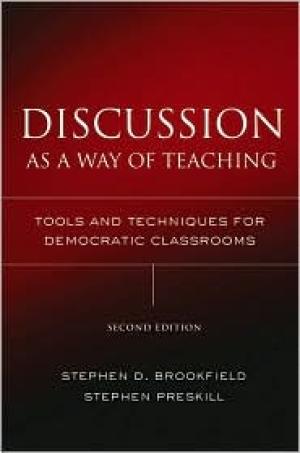
Thoroughly revised and updated, the second edition of the landmark book Discussion as a Way of Teaching shows how to plan, conduct, and assess classroom discussions. Stephen D. Brookfield and Stephen Preskill suggest exercises for starting discussions, strategies for maintaining their momentum, and ways to elicit diverse views and voices. The book also includes new exercises and material on the intersections between discussion and the encouragement of democracy in the classroom. This revised edition expands on the original and contains information on adapting discussion methods in online teaching, on using discussion to enhance democratic participation, and on the theoretical foundations for the discussion exercises described in the book. Throughout the book, Brookfield and Preskill clearly show how discussion can enliven classrooms, and they outline practical methods for ensuring that students will come to class prepared to discuss a topic. They also explain how to balance the voices of students and teachers, while still preserving the moral, political, and pedagogic integrity of discussion. (From the Publisher)

This textbook seeks to explore the purpose and values of the philosophy of education, and specific issues of contemporary relevance. (From the Publisher)